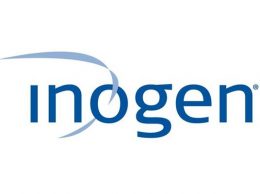Inogen IPO is subject to looser SEC rules
IN THIS ARTICLE
- Banking & Finance Topic
- Stephen Nellis Author
By Stephen Nellis Friday, January 31st, 2014
If Goleta-based Inogen goes public this year, it will be the first firm in the region to do so under new securities rules that make it easier for small companies to become listed on the major exchanges but also allow them to reveal less information to investors than their larger counterparts.
Inogen, a portable oxygen system maker founded by UC Santa Barbara students, filed papers to raise $86.2 million in a public offering late last year. It’s considered a so-called “emerging growth company,” a designation created by the JOBS Act in 2012.
The new rules essentially let companies with less than $1 billion in revenue divulge less information about their financial performance and executive pay and exempt them from following the same stringent accounting standards as their larger counterparts. They also give companies the chance to pre-file in secret with the U.S. Securities and Exchange Commission to resolve any serious issues before the filing is made public.
So far, Inogen has taken advantage of many of the new provisions. It filed a draft registration with the SEC about a month before making its filings public. It has listed executive pay for only three named officers instead of five and will be exempt from “say on pay” shareholder votes. It will also be exempt from disclosing the ratio of executive pay to rank-and-file workers and from making information about “golden parachute” provisions for executives public.
Inogen has also said that its independent auditor will not have to attest that its internal financial controls are sound for up to five years or $1 billion in revenue, at which point Inogen would no longer qualify as an emerging growth company. The company has said it has already identified “a significant deficiency, or a combination of significant deficiencies” that could cause its financial statements to be faulty. In its securities filings, the company said it lacks enough accounting staff to handle the regulatory load of being a public company and has problems accounting for deferred revenue and warranty costs.
“We are in the very early stages of the costly and challenging process of compiling the system and processing documentation necessary to perform the evaluation needed to comply” with accounting rules, the company said in a filing. “[I]f we identify one or more material weaknesses in our internal control over financial reporting, we will be unable to assert that our internal controls are designed and operating effectively, which could result in a loss of investor confidence in the accuracy and completeness of our financial reports. This could cause the price of our common stock to decline, and we may be subject to investigation or sanctions by the SEC.”
Testing the waters
Aside from loosening accounting and financial disclosure rules, the other big change for emerging growth companies are the so-called “testing the waters” provisions. After a company has confidentially filed its papers with the SEC, it is allowed to talk with certain big investors to gauge their interest. If the deal goes forward, the initial draft filing will eventually become public. If the IPO is pulled for lack of interest, the filings are never revealed.
David Lafitte, a corporate lawyer with Stradling Yocca Carlson & Rauth in Santa Barbara, said that’s a welcome change. “After you decided to go public, you were in this sort of waiting period. You needed to be very careful about statements being made that could be construed as conditioning the market. If the SEC saw that, they could require the company to wait six months or a year before going public. The consequences were very severe being put on ice like that,” he said.
And not all emerging companies are tapping each provision of the JOBS Act. Even though Inogen only has to disclose two years of audited financial data, it is releasing close to three years’ worth. And it is also following public accounting standards, even though it is not required to yet.
“Frankly, the market is still evolving on what relief is OK,” said Tom Hopkins, an attorney with the firm Cooley who worked on some of the first IPOs filed under the new act. “Even though you don’t have to put in the same amount of financial data, many filers do because it makes it easier to get underwriting. You can defer public accounting standards, but I don’t know of any [emerging growth company] that’s availed themselves of that.”
‘All but the biggest behemoths’
But critics of the JOBS Act argue that many of the provisions — such as the exemption from having internal financial controls reviewed by an outside auditor — were already in place for truly small companies with less than $75 million in revenue.
If all the public companies in the Tri-Counties were to file to go public today, only four — Amgen, Teledyne Technologies, Deckers Outdoor Corp. and Ryland Group — would not qualify as “emerging growth companies.”
Barbara Roper, director of investor protection for the Consumer Federation of America, said the $1 billion revenue mark is simply too high. “It defines virtually all but the biggest behemoths as emerging growth companies. You don’t have to be emerging, and you don’t have to be a growth stock to be an ‘emerging growth company,’ ” she said.
One of Roper’s biggest concerns is the exemption from the so-called “internal pay equity” provision that would require companies to disclose the ratio of CEO pay to the median employee pay. The rule is still being written by the SEC. “That’s something that actually provides some pretty significant investor information. To what extent are investors’ funds going toward compensating highly paid executives versus to the workforce?” Roper said.
But Lafitte of Straddling Yocca said the JOBS Act doesn’t change any of a company’s legal duties toward shareholders. “This doesn’t allow anybody to do anything other than look out for the best interests of, and maximize value for, shareholders. Those underlying themes don’t change,” he said.
Cooley’s Hopkins said that while the JOBS Act doesn’t lower the cost of going public, it does lower the heavy burden of putting out so much information in the hyper-competitive world where many startups play.
“At the margins it helps these companies look at the process and get involved in the process,” he said. “It’s scary for privately held companies to put everything out there all at once, to put it out there in front of your employees and customers and suppliers knowing you’re going to go through a months-long process to get a deal. Letting companies do a chunk of that process behind the scenes has been helpful.”











